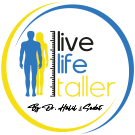During Limb lengthening surgery, bones are cut in a controlled manner, also called osteotomy, the crevice between the cut bones feels daily with new bone tissue. The muscles, veins, veins, tendons must also adapt to the new size. Therefore, it is necessary to give preference to foods that strengthen muscles and bones and promote their growth. Drink a lot and eat a diet rich in vitamins and protein, which should be part of the daily menu. Eating a healthy diet accelerates bone growth.
Table of Contents
ToggleCigarette and alcohol consumption
Smoking and alcohol consumption have a negative effect on the regeneration of the body, slowing down and retarding bone growth. During the entire treatment and healing phase, alcohol and cigarette consumption should be avoided.
Bone Healing and Supplements After Limb Lengthening Surgery
Limb lengthening surgery, a complex orthopedic procedure designed to correct discrepancies in limb length or to enhance stature, initiates a demanding healing journey for the patient. This intricate process not only involves the mechanical stretching of bone but also engages a comprehensive physiological healing response that is heavily influenced by the patient’s nutritional status. Recognizing the pivotal role of nutrition in bone healing, a personalized dietary plan, meticulously tailored according to the patient’s body composition and medical background, becomes an essential component of post-operative care. Also which method of the lengthening (Precice 2 method or LON method) and which segment of the leg (upper leg/femur lengthening or lower leg/tibia lengthening) is important as well.
The primary aim of crafting such a specialized diet is to facilitate optimal bone regeneration. Concurrently, as the lengthening process unfolds, the healing continuum is bolstered with nutritional supplements, selected judiciously to complement the patient’s dietary intake and to align with their overall health profile.
The Importance of Nutrition in Bone Healing After Limb Lengthening
Nutrition emerges as a cornerstone in the convalescence following limb lengthening surgery. The procedure inherently escalates the body’s metabolic demands, eliciting a surge in calorie and nutrient requirements. The healing bones, now undergoing a gradual process of elongation, rely profoundly on an ample supply of nutrients to rebuild and strengthen. A diet deficient in calories, proteins, calcium, and other vital macro and micronutrients can severely hamper this regenerative process, leading to delayed healing or complications.
Essential Nutrients to Consume for Bone Healing
Addressing the heightened energy expenditure post-surgery necessitates a comprehensive nutritional strategy. This encompasses not only a diet that rectifies the energy imbalance but also one that is enriched with specific nutrients pivotal for bone remodeling and soft tissue repair. Proteins, the scaffolding of tissue regeneration, and calcium, the cornerstone of bone mineralization, stand out as critical dietary components. The precise quantity of these nutrients, adjusted to meet the individual needs of the patient, forms the crux of the dietary regimen.
Vitamin Supplements Important for Bone Healing
In addition to macro and micronutrients, the administration of targeted vitamin and mineral supplements plays a crucial role in the post-operative nutritional strategy. These supplements are not a one-size-fits-all solution but are carefully prescribed based on the patient’s unique physiological demands and the specific challenges posed by the limb lengthening procedure.
• Vitamin D and Calcium: The synergy between vitamin D and calcium is instrumental in fostering bone mineral density. Vitamin D enhances calcium absorption, a mechanism critical in the bone regeneration phase. Given the limitations in acquiring sufficient vitamin D through diet alone, especially in post-operative confinement or limited sun exposure scenarios, supplementation becomes indispensable.
• Magnesium: Acting as a catalyst in the body’s enzymatic reactions, including those crucial for bone health, magnesium supplementation can amplify the benefits of calcium and vitamin D, thereby supporting the structural integrity of the newly forming bone.
• Vitamin C: Its role transcends immune system support; vitamin C is pivotal for collagen formation, a fundamental component of bone and connective tissue. Its inclusion in the post-operative diet aids in wound healing around surgical sites and contributes to the matrix that underpins bone regeneration.
• Omega-3 Fatty Acids: These are acclaimed for their anti-inflammatory properties, which can be particularly beneficial in mitigating post-surgical inflammation and fostering a conducive environment for bone healing. Additionally, omega-3s are believed to support bone density, adding another layer of nutritional support in the healing process.
• Protein: High-quality protein is paramount for the repair and growth of tissue, including the regeneration of bone. Adequate protein intake supports the structural development of the bone being elongated, underscoring the necessity of incorporating lean meats, dairy, legumes, and plant-based proteins into the diet.
The comprehensive approach to nutrition and supplementation post-limb lengthening surgery is a testament to the intricate interplay between diet and healing. It underscores the need for a tailored dietary plan that not only meets the increased metabolic demands of the body but also addresses the specific nutritional requisites for bone regeneration and overall recovery. As such, the collaboration between orthopedic surgeons, dietitians, and the patient is critical in navigating the nutritional landscape to optimize healing outcomes.
Calcium
Calcium’s role in the human body extends beyond its critical function in bone formation and maintenance; it is also vital for blood clotting, muscle contraction, and nerve signal transmission. The majority of the body’s calcium reserves are stored in bones and teeth, acting as a bank from which calcium is deposited and withdrawn to maintain blood levels within a tight range. Dietary sources rich in calcium include dairy products like milk, cheese, and yogurt, as well as leafy green vegetables, nuts, and seeds. For individuals unable to meet their calcium needs through diet alone, supplements may be recommended. However, the balance is key, as excessive calcium can lead to kidney stones and interfere with the absorption of other essential minerals.
Vitamin D3
Vitamin D3 is unique as it can be synthesized by the human body upon exposure to sunlight, yet many individuals find it challenging to obtain sufficient levels due to indoor lifestyles and geographical factors. This vitamin’s paramount role in enhancing the intestinal absorption of calcium is crucial for maintaining optimal bone health. Vitamin D deficiency can lead to bone disorders such as rickets in children and osteomalacia in adults. Fatty fish, egg yolks, and fortified foods are among the dietary sources of vitamin D, but supplements are often necessary to achieve adequate levels, especially in those with limited sun exposure.
Magnesium
Magnesium’s contribution to bone health is multifaceted; it influences the bone mineral matrix and the ability of bodily cells to metabolize vitamin D. An adequate intake of magnesium is associated with improved bone density and a reduced risk of osteoporosis in the elderly. Magnesium is present in foods such as nuts, seeds, whole grains, and green leafy vegetables. When magnesium is taken in combination with calcium and vitamin D, it can support a synergistic effect that enhances bone healing and overall strength.
Vitamin K
Vitamin K plays a critical role in the synthesis of proteins required for bone mineralization and indirectly supports the proper function of calcium and vitamin D in bone metabolism. Its interaction with blood thinners underscores the importance of medical guidance when considering vitamin K supplementation. Dietary sources of vitamin K include green leafy vegetables, broccoli, and fermented foods, which can help maintain adequate levels for those not on blood-thinning medications.
Vitamin C
Beyond its role in immune function, vitamin C is a key player in collagen synthesis, the foundation of connective tissue in the body, including the skin, tendons, ligaments, and bones. Its involvement in wound healing is particularly relevant for surgical patients or those recovering from bone fractures. Citrus fruits, strawberries, bell peppers, and kiwifruit are excellent sources of vitamin C, which can aid in the recovery process and support bone health.
Protein
Proteins, the building blocks of the body, are essential for the repair and growth of tissue, including bone. Amino acids found in protein contribute to the formation of bone matrix and collagen. Ensuring adequate protein intake is crucial for bone density and strength, particularly in the aging population, who are at increased risk for muscle loss and bone fractures. Lean meats, dairy products, legumes, and soy products are valuable protein sources that should be incorporated into a balanced diet.
Omega-3 Fatty Acids
The anti-inflammatory properties of omega-3 fatty acids are beneficial for reducing the risk of bone and joint conditions. These essential fats promote healthier, more resilient bones by influencing the balance of bone-forming and bone-resorbing cells. Omega-3s can be found in fatty fish, such as salmon and mackerel, as well as flaxseeds, chia seeds, and walnuts. Regular consumption of omega-3s is recommended for its cardiovascular benefits in addition to its role in supporting bone health.
In conclusion, a holistic approach to nutrition that incorporates these key nutrients can significantly impact bone health and healing. It’s essential to strive for a balanced diet enriched with these vitamins and minerals, possibly supplemented under professional guidance, to ensure the body’s structural integrity and overall wellness are maintained.


